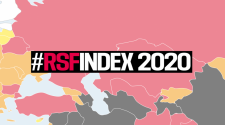As the coronavirus spreads and social distancing becomes a new norm, many of us are grappling with a somewhat obvious but still surprising reality: despite the ubiquity of digital technology, much of the business of ordinary life happens off-line. Humans are wired — but not hardwired for physical distancing.
Yet faced with the threat of COVID-19, the world is rushing to gin up remote teaching and learning platforms to continue everything from high school and higher education to diplomacy and career development. The technology has been there but, up until now, our will to fully harness it has not.
Pressing issues like immigration and migration, inequality, and now the global COVID-19 pandemic require the best insights from across our societies and around the world. Yet research on such topics is conducted by experts working in silos of expertise, geography, culture and language — dominated by Western perspectives and conducted largely in English. Ongoing, global research collaborations — the kind we need right now to develop new coronavirus treatments and vaccines — are rare.
Our digital technology has the power, however, to break down the geographic boundaries, intellectual borders and language barriers that prevent us from collectively addressing our greatest global challenges. We need to use it for this purpose — now more than ever.
We need digital platforms more conducive to fostering serious and substantive global intellectual exchange. Yes, there are digital platforms for serious scholarly work like Sermo, a private social media network for physicians. But the vast majority of our time online is reserved for fun and frivolity. The “real world” has remained the place where world leaders congregate, treaties are signed, experiments are conducted and debates about the substantive issues of the day are staged.
So how do research institutions adapt and make use of digital technology for these important purposes?
For starters, we need to use digital platforms to engage with foreignness. The digital domain’s echo chambers often skew and obscure reality, especially in the spaces where we socialize. We tend to flock together in how we choose to interact online and on social media. Twitter, for example, “is shrinking as a platform with fewer and fewer tweets each day by an older and older user community that is growing more insular and isolated by the day,” in the words of Kalev Leetaru, senior fellow at the George Washington University Center for Cyber & Homeland Security.
We need digital platforms that promote and encourage radical diversity of thought and equitable participation from the grassroots to the grasstops: laborers and policy makers, students and scholars, nonprofit and business leaders, and, perhaps most important, “ordinary” citizens. We need to break down the tangible and invisible barriers that prevent these groups from coming together to make real progress in grappling with the most pressing social challenges of our time. Remaining locked inside our respective ivory towers and areas of expertise is no longer an option.
That came into sharp focus for me when I found myself on the ground and in the middle of the Great East Japan earthquake and Fukushima nuclear disaster of 2011. I was studying the role of legal expertise in financial markets and contracts when Japan’s economy crumbled under the weight of an unanticipated environmental and health crisis seemingly outside the scope of finance. Those events brought home the fact that the assumptions we make about risk and certainty — and the silos we build around our work — can quite literally kill. When the dust settled in Japan, the consensus was the nuclear disaster could have been avoided, or at least anticipated, if the academics, nuclear scientists and engineers had been talking with each other.
This grim and humbling reality inspired me to work outside my own bubble — outside my comfort zone, frankly — to create the Meridian 180 online forum. Through the forum, creative thinkers from around the world come together to exchange ideas and develop adaptive solutions to economic, environmental, political, social justice and other crucial issues. Meridian 180 is designed to break down barriers of what is “foreign,” whether that is another discipline, language, country or political point of view. As societies around the world become increasingly insular, we are focused on meaningful collaboration to reach shared global aspirations: the UN Sustainable Development Goals that 193 countries have adopted.
Our members are scholars, lawyers, policy makers, activists and business professionals. We cross the divide between the academy, industry and public sector to identify gaps in research and response, in areas where response is vitally needed. Since 2011, Meridian 180 has hosted 42 online conferences in which members engage in a frank and open exchange of ideas, translated into Chinese, English, Japanese and Korean to ensure a truly global conversation.
For example, Meridian 180 brought together diverse stakeholders, ranging from lawyers and financial analysts representing nuclear power plants to anthropologists working with fisherpeople, from Fukushima to Three Mile Island to Chernobyl, to think about how to appropriately compensate and care for the victims of the next big nuclear accident, wherever it might be. Their findings, to be published next year, show that such accidents have many real costs and that current public and private insurance mechanisms are severely inadequate. In a similar way, we are now bringing together clinicians, logistics, manufacturing and humanitarian aid leaders, materials engineers, and others together to address urgent COVID-19 medical equipment and supply chain issues.
We also need to ensure the digital forums we create are safe spaces for true intellectual experimentation — virtual spaces where people can bring the full force of their imaginations to bear and think out loud without fear of reprisal. On the Meridian 180 platform, we employ the Chatham House Rule: “participants are free to use the information received, but neither the identity nor the affiliation of the speaker(s), nor that of any other participant, may be revealed.” Truly sustainable solutions and responses to our challenges will only bubble up to the surface when people take intellectual risks, question conventional wisdom and listen with their full hearts and minds. We have found that digital technologies provide new ways of making everyone feel safe to experiment and ensuring everyone is heard, with linguistic translation, a mix of synchronous and asynchronous activity, and artificial intelligence that notices whose voices are missing.
Even after we flatten the COVID-19 curve, using digital platforms and forums to conduct more of our serious business and intellectual exchange makes sense. The world is on the verge of a global reset in which traditionally analog paradigms, political alliances and modes of operating no longer hold. To generate the kind of prospective knowledge that can help us imagine, anticipate and prepare for global crises like the Great East Japan earthquake and COVID-19, we need to develop greater flexibility of mind, humility, empathy and comfort with risk taking and playfulness — the kind of skills that encourage experimentation, collaboration and solutions to our greatest global challenges. Digital platforms designed to address serious scholarly concerns can help us overcome national, geographical and linguistic divides and create a more global research conversation.

















